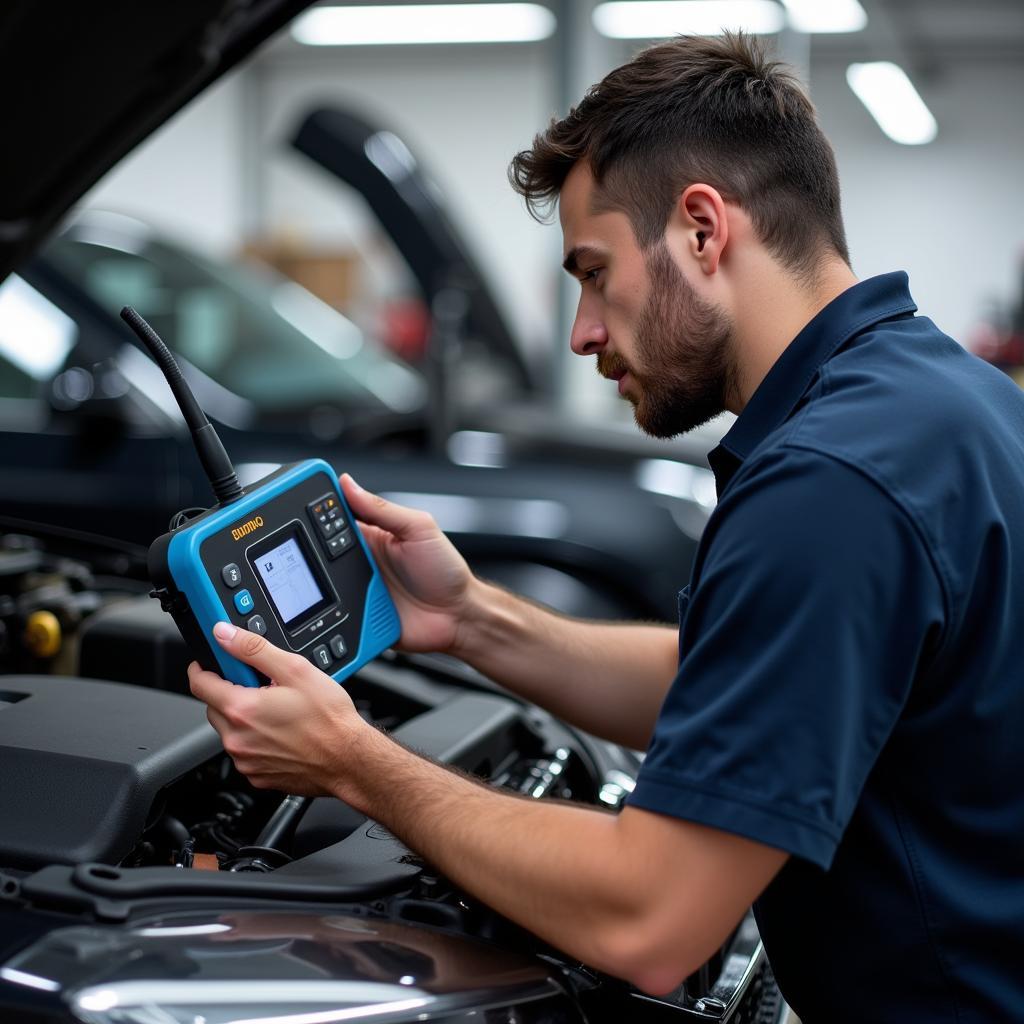Understanding your car’s health is crucial, and that’s where a diagnostic check comes in. A diagnostic check for your car is like a checkup with the doctor, but instead of examining your body, it assesses the intricate network of your vehicle’s computer system. This process reveals any hidden issues and provides valuable insights into your car’s overall well-being.
Why is a Diagnostic Check Important?
Modern cars rely heavily on electronics and sensors that communicate with the Engine Control Unit (ECU). When a problem arises, the ECU triggers a warning light on your dashboard, such as the check engine light. A diagnostic check delves into the ECU’s stored data, deciphering these warning signals and providing a detailed report of the issue.
What Does a Diagnostic Check Detect?
A diagnostic check can identify a wide range of problems, from minor glitches to major malfunctions. Here are some key areas it covers:
- Engine Performance: Issues related to fuel injection, ignition timing, air/fuel mixture, and emissions.
- Transmission System: Problems with gear shifting, clutch operation, and torque converter.
- Brake System: Faults in ABS, traction control, and brake fluid pressure.
- Exhaust System: Malfunctions in the catalytic converter, oxygen sensors, and emissions control systems.
- Electronic Systems: Issues with the battery, alternator, starter, and other electrical components.
How Often Should You Get a Diagnostic Check?
While opinions vary, experts recommend a car diagnostic check free at least once a year or every 10,000 miles. Additionally, consider a check if:
- Warning Lights Illuminate: Don’t ignore dashboard lights; seek immediate attention.
- Performance Issues Arise: Noticeable changes in fuel efficiency, acceleration, or engine sound warrant a check.
- Purchasing a Used Car: A diagnostic check provides valuable information about the car’s history and potential issues.
Types of Diagnostic Checks:
- OBD-II Scan: Connects to your car’s OBD-II port to read and interpret error codes stored in the ECU. This is a basic diagnostic check offered by most mechanics and some auto parts stores.
- Advanced Diagnostic Scan: Utilizes specialized software and equipment to perform a more in-depth analysis of your car’s systems, offering a comprehensive understanding of the issue.
The Benefits of Regular Diagnostic Checks:
Regular diagnostic checks offer significant benefits:
- Early Problem Detection: Identifies potential issues before they escalate into costly repairs.
- Improved Performance: Ensures your car runs smoothly and efficiently.
- Enhanced Safety: Addresses safety-related concerns promptly.
- Increased Resale Value: Demonstrates responsible car maintenance to potential buyers.
 Mechanic Performing Diagnostic Check
Mechanic Performing Diagnostic Check
“A proactive approach to car maintenance is key,” says John Smith, a seasoned automotive engineer at DiagFixPro. “Regular diagnostic checks, coupled with timely repairs, can save you time, money, and potential headaches down the road.”
Conclusion
A diagnostic check is an essential aspect of modern car maintenance. It provides a deep dive into your car’s inner workings, offering valuable information about its health and performance.
By investing in regular diagnostic checks, you’re not just maintaining your vehicle; you’re ensuring a smooth, safe, and cost-effective driving experience for years to come. Remember, when it comes to your car’s well-being, knowledge is power, and a diagnostic check is your key to unlocking it.
